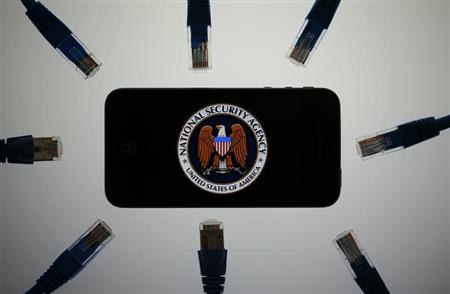
by Daniel Trotta
The American Civil Liberties Union sued senior U.S. government officials on Tuesday to strike down the National Security Agency's broad telephone surveillance, a challenge that may have improved chances of succeeding as a result of recent leaks about the program.
The lawsuit filed in U.S. District Court
for the Southern District of New York claims the U.S. government's
collection of vast communications records violates rights to free speech
and privacy as guaranteed by the U.S. Constitution.
The suit was filed amid a furor over leaks by former NSA contractor Edward Snowden, who disclosed a massive government program to collect and store phone and Internet records from major telecommunications companies.
Legal experts said the leaks could help the ACLU to succeed where a previous suit involving Amnesty International failed.
After news stories from
Snowden's leaks appeared in the Guardian of Britain and the Washington
Post, U.S. National Intelligence Director James Clapper declassified some details of the program, acknowledging it existed.
In Amnesty's challenge to the surveillance program, the U.S. Supreme
Court in February ruled 5-4 in favor of the government in part because
it said the plaintiffs could not prove their phones had been tapped."Because the government has told us all that it is collecting the metadata, then that (Supreme Court reasoning) goes away," said Neil Richards, a professor at Washington University School of Law in St. Louis, Missouri.
John Mahoney, a partner at the Washington law firm Tully Rickney, agreed that Clapper's acknowledgement of the program last week had opened the door to a legal challenge.
"This suit has got legs because I do think this (surveillance) program might be overbroad constitutionally," Mahoney said. "I'm all for national security and I do national security law for a living, but to just broadly capture every phone call and every Internet message by every citizen of the United State seems a bit much."
The U.S. Justice Department declined to immediately comment on the suit, saying it needed time to review it and respond.
BALANCE BETWEEN PRIVACY AND SECURITY
President Barack Obama has defended the sweeping government surveillance of Americans' phone and Internet activity, calling it a "modest encroachment" on privacy that was necessary to defend the United States from attack.
However, Obama also said he welcomed public debate on the balance between privacy and security.
"The president has said he welcomes a public debate. It would be odd to say that and then expect a state secret privilege," said Jameel Jaffer, one of the ACLU lawyers on the suit.
The rights group asked the court to immediately halt the NSA's vast tracking program of telephone calls, declare the program illegal, and order the government to purge all databases of the call records.
The government "vacuums up information about every phone call placed within, from, or to the United States," the ACLU said, arguing that it violates the First Amendment rights of free speech and the right of privacy protected by the Fourth Amendment of the U.S. Constitution.
The suit cited the government's acknowledgement that the Foreign Intelligence Surveillance Court required Verizon Business Network Services to turn over metadata about the calls made by each of its subscribers over a three-month period as a continuation of a program that members of Congress said has been in place for seven years.
As a Verizon subscriber, the ACLU named itself as a plaintiff, saying the government's secret monitoring program was "likely to have a chilling effect on whistleblowers and others who would otherwise contact plaintiffs for legal assistance."
The ACLU, the New York Civil Liberties Union and both of their foundations were named as plaintiffs.

No comments:
Post a Comment